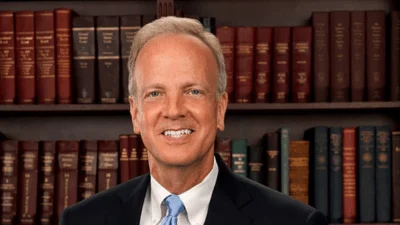Thank you, Mr. Chairman. We could spend this hearing talking about when and how this policy change was announced. I might have preferred a different approach, but it’s not my job to speculate on best practices for the White House. It’s my job-our job-to continue to shape and guide reform so that it best serves the American people. To focus on policy, not politics.
There has been a lot of noise from both sides of the aisle over what this shift means, but no one here really knows. I didn’t spend my Fourth of July combing over the implications of the change and I doubt I’m alone. Trying to adjust and dissect this plan on the back of a galloping horse, before we have a chance to properly consider it, is unwise.
I’m sure it’s tempting for those who have stood against reform and progress from the beginning to see this as a chance to rip Obamacare apart. The irony of objecting to the delay of a program you’ve been trying to stop is, no doubt, lost on this room. We’re even going to get a 38th vote to dismantle it, just for good measure.
The fact is that Obamacare is largely unaffected by this delay. It was always designed to build on current coverage and fill in the gaps. The employer responsibility requirements are just a piece of the puzzle that makes up universal coverage.
The Marketplace exchanges are on track to open on October 1 and states are readying themselves. Premium filings are coming in lower than expected in Washington, California, and most other states. Oregon’s 2014 filings show premiums slashed by as much as 35 percent. Reality dramatically contradicts the rhetoric in this critical area.
We don’t know exactly what the landscape will look like in January, but it’s entirely possible this decision will help consumers. Employees who remain uncovered will be able to find assistance through tax credits and other subsidies in the federal “Marketplace" or their state exchange. The delay will also give businesses time to adjust and for the community to work with Treasury to figure out the most efficient and effective way to comply with the law.
For the 95 percent of employers who already offer coverage to their employees, we have every reason to believe that they will continue to do so. Massachusetts saw no drop in employer coverage under RomneyCare. In fact, in the seven years since its implementation of universal health insurance, employer coverage has increased slightly.
But most importantly, it’s better for us to delay this and get it right, than to rush and get it wrong.
I’d like to give this some historical context. In 1966, Medicare workers were traveling door to door to enroll seniors… with leaflets printed without appropriated funds! And usually those doors were slammed in their faces. The American Medical Association denounced the program as the first step towards Socialism and agency administrators wondered if hospitals would be overrun with lines of sick and elderly patients stretching out for blocks. The Bureau of Health Insurance began operating without oversight and often without regard to formal requirements of rulemaking, simply hoping things would fall into place.
Forty seven years later, Medicare is the bedrock of our social safety net. It is the standard-bearer of government that works. And a big part of what saved us then was that everyone worked together to get it off the ground. Congress intentionally wrote flexible conditions and the Administration was allowed to make changes as they saw fit. They were willing to take chances to ensure success.
Let’s consider the path ahead of us before we burn the bridge behind us. The President isn’t going to reverse this decision, so let’s see where it goes. And most importantly, let’s remember to whom we are accountable. It’s not pollsters, or cable news anchors, or the President’s campaign team. Our only job in this Committee is to fulfill the promise to American citizens of affordable healthcare.








